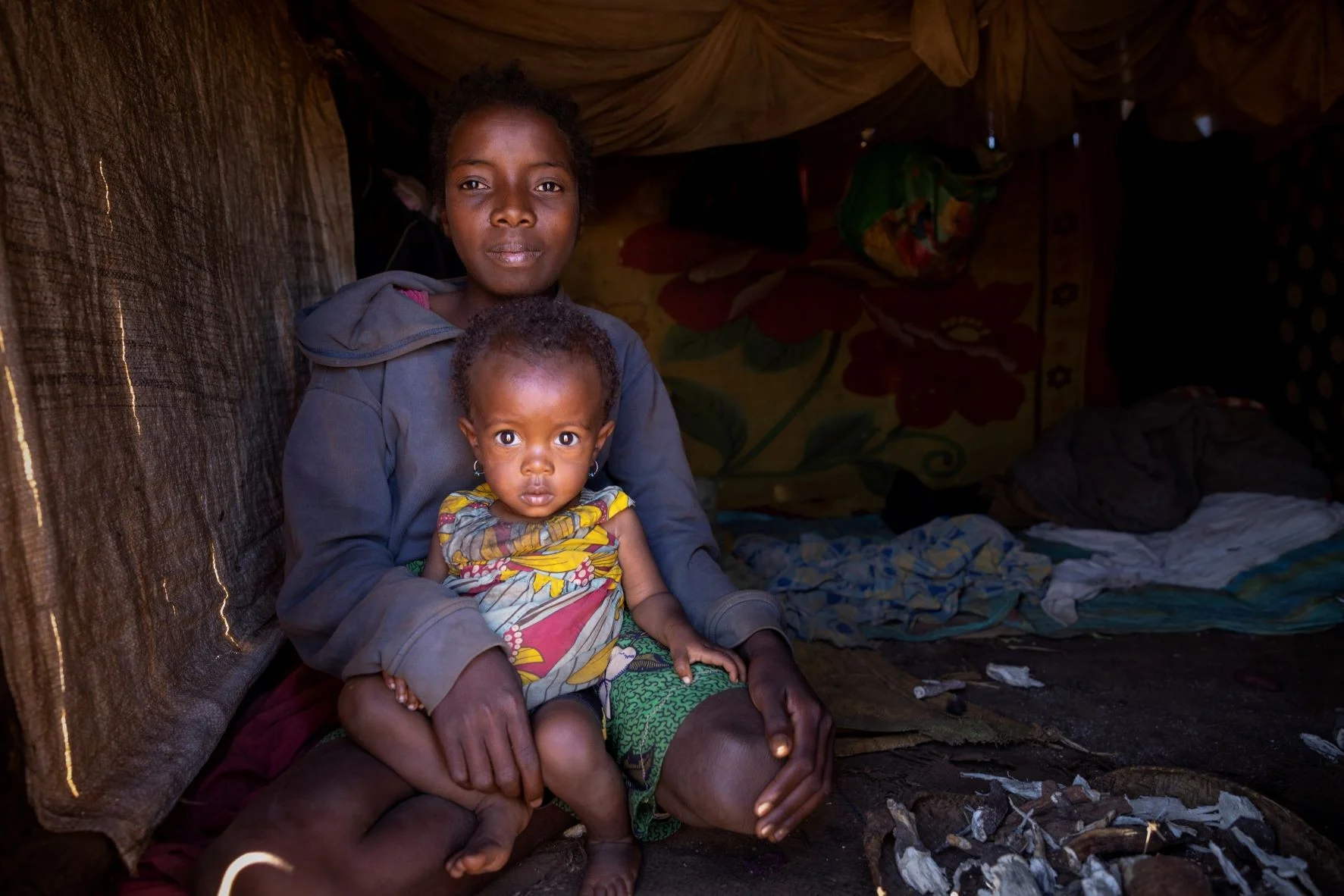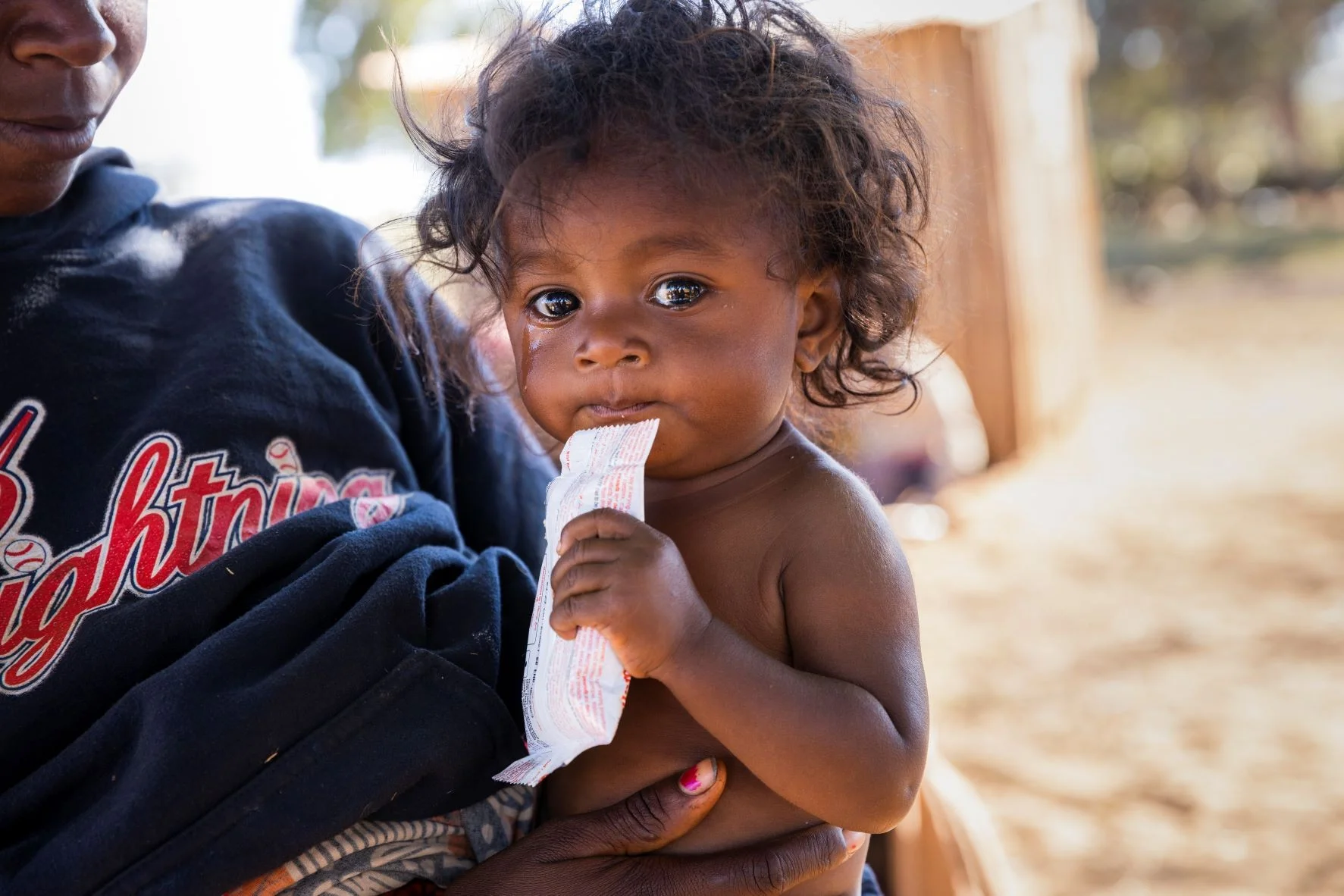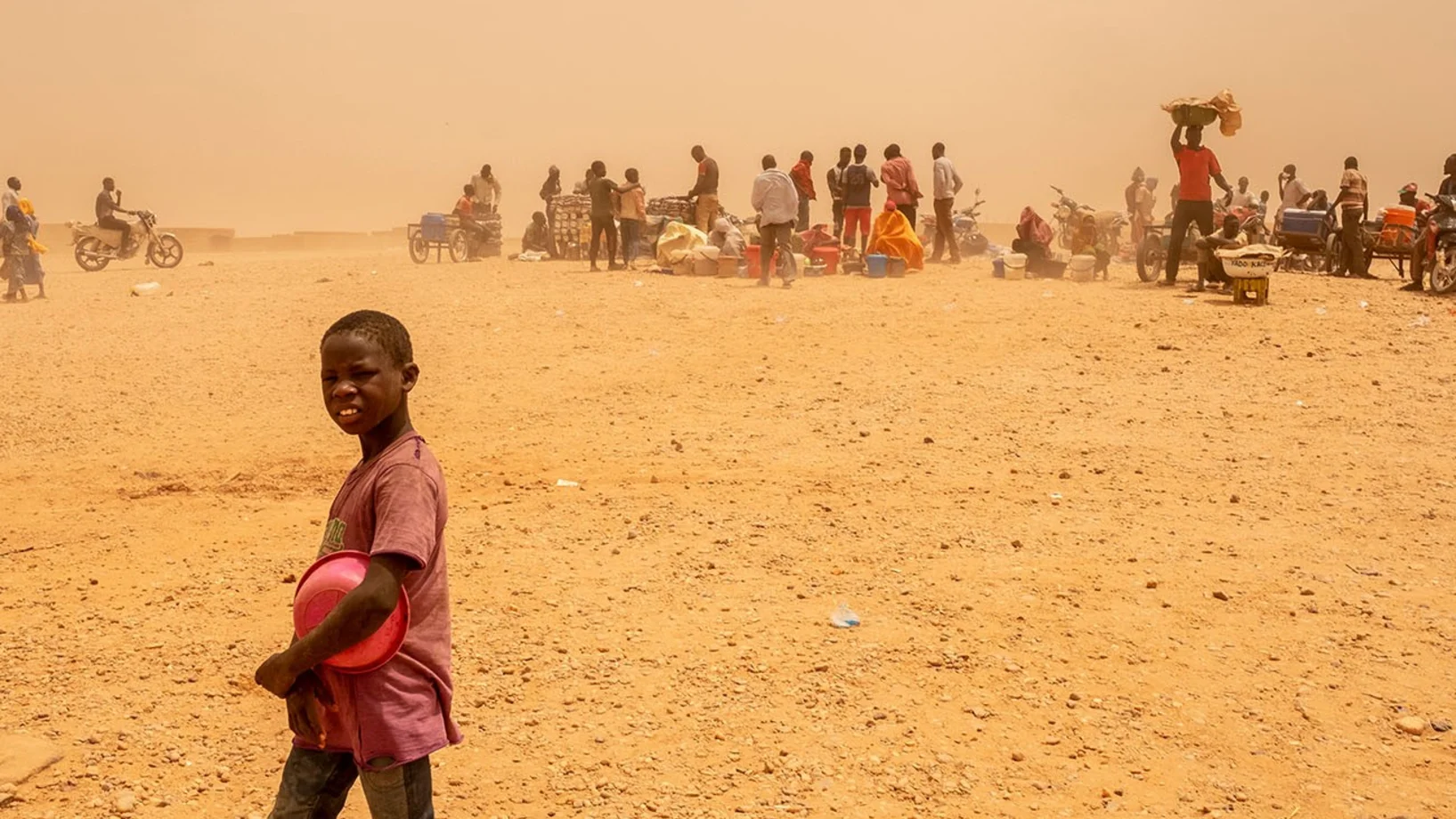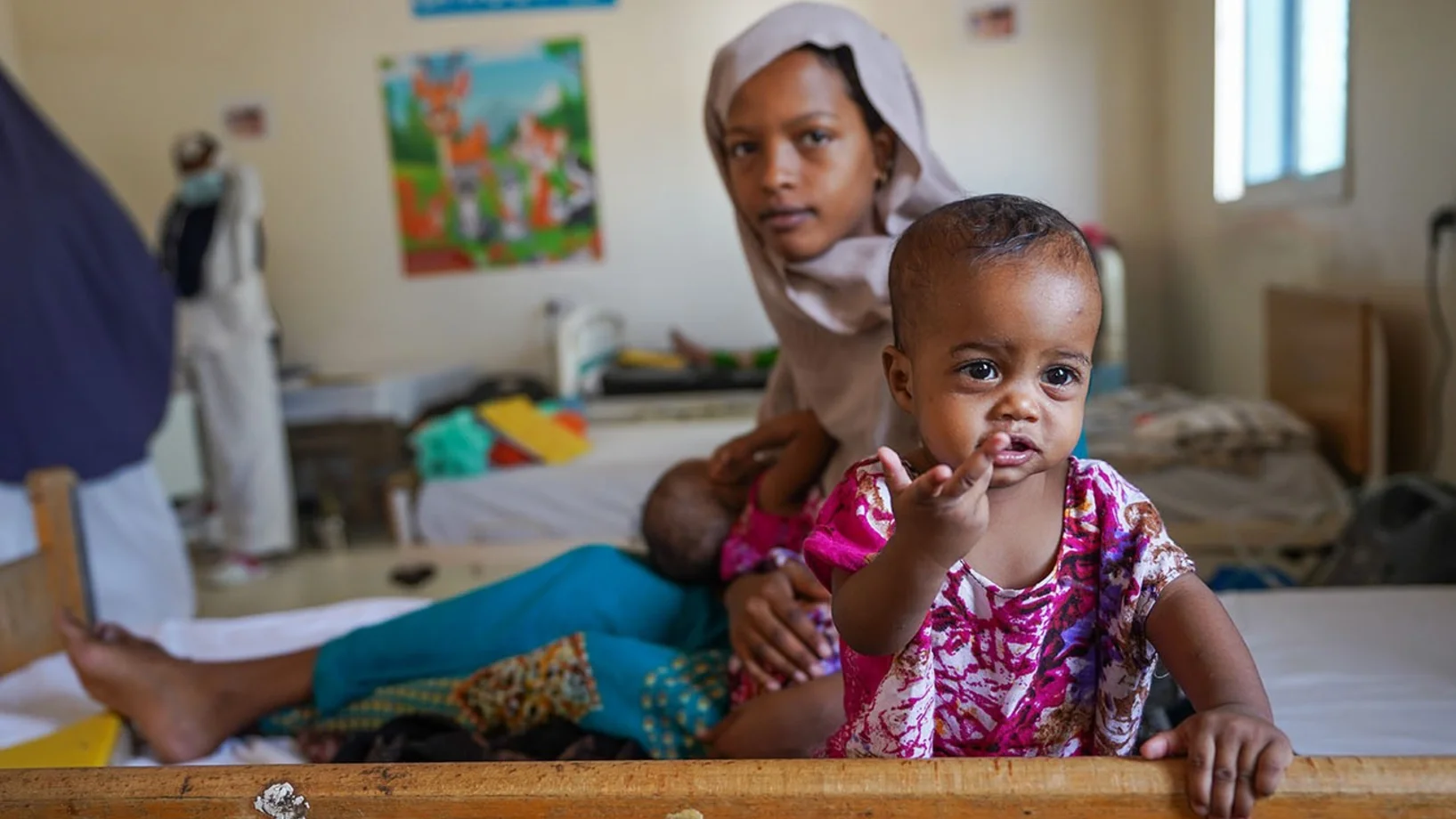Madagascar is one of the countries in the world most affected by climate change. The island is currently experiencing its worst drought in forty years. The south is particularly affected, with many families starving and barely surviving. Half a million children under the age of five are at risk of acute malnutrition and in urgent need of medical help.
The situation
Madagascar is the largest island state in Africa and the fourth largest island in the world. However, only 27 million people live there. Due to its isolated location in the Indian Ocean, a remarkably diverse world of plant and animal life has developed on the island. While the island was once almost completely forested, only a fraction of the original rainforest remains. Madagascar is therefore particularly affected by climate change. The island is currently experiencing its worst drought in forty years.
At the same time, Madagascar is one of the poorest countries in the world. Over 81 percent of the population lives in extreme poverty. More than 40 percent of people cannot provide themselves with sufficient food, and almost one in two children under five are chronically malnourished. Almost half of the population has no access to clean drinking water.
How UNICEF helps
Severe malnutrition quickly results in death from starvation, especially among infants. That is why UNICEF is providing malnourished children in Madagascar with therapeutic milk and peanut paste. Thanks to this special food, children are able to regain their strength. At the same time, UNICEF is focusing on the prevention of chronic and acute malnutrition. Healthcare staff, parents, teachers and young people are trained, given information and empowered on the topic of healthy nutrition and how to recognize malnutrition.




